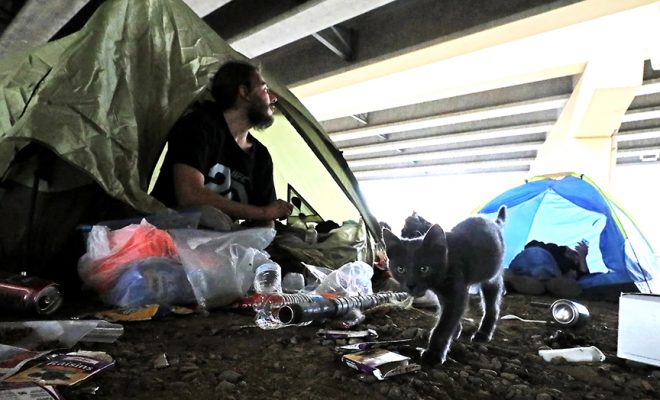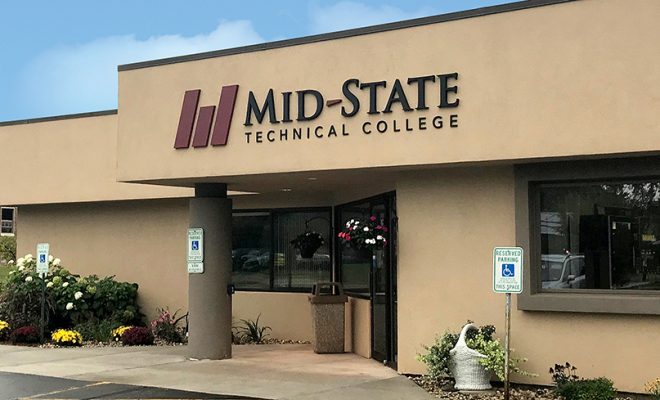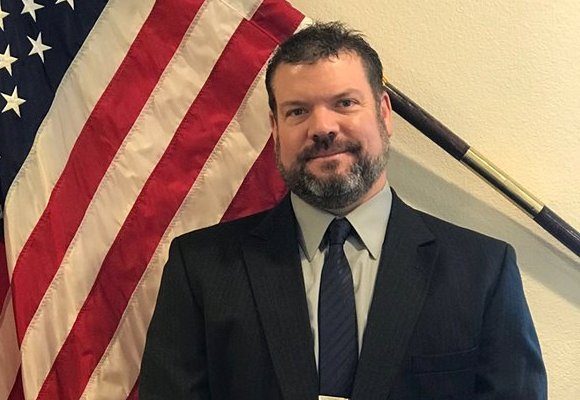Multi Media Channels and other advocates address Senate on homelessness issue

By Dean Mosiman
Wisconsin State Journal
MADISON – Advocates and lawmakers from both parties voiced concern on Oct. 22 at the pace of progress on a package of bills that would deliver $7.5 million in additional spending to address homelessness over two years but expressed confidence that the Republican-controlled state Senate will ultimately pass the legislation.
“It’s been a little frustrating about how slow it can be,” Assembly Majority Leader Jim Steineke, R-Kaukauna, told about 30 lawmakers, business leaders, service providers and media representatives at a symposium on homelessness Tuesday sponsored by the Wisconsin Newspaper Association. “But I feel like we’re going to get there.”
The legislation was highlighted during a far-ranging, three-plus-hour discussion that stressed a need for low-cost housing, revisiting tenant-landlord laws, addressing the needs of service providers and more.
Despite some differences, including partisan tension over the state’s tenant-landlord laws, participants voiced optimism about recent state efforts to address homelessness and the importance of sustaining momentum.
An initial symposium in the summer led to a special news report, “Homelessness in Wisconsin — State at a Crossroads” and follow-up editorials published in roughly 30 newspapers across the state earlier this month.
“We have the same goals,” said Patrick Wood, CEO and publisher of Multi Media Channels based in Waupaca. “We need to dialogue with each other and talk to each other.”
The package of eight bills, recommended by the Wisconsin Interagency Council on Homelessness, was passed by the GOP-controlled Assembly and echoed in Democratic Gov. Tony Evers’ first budget, but stalled in the Legislature’s GOP-controlled budget committee.
The legislation, if approved by the Senate and signed by Evers, would be the state’s largest dollar increase ever to directly address homelessness. The finance committee must still give approval before the money can be spent.
Rep. Lisa Subeck, D-Madison, said the state needs action on the legislation “now,” and voiced concern that politics may be getting in the way. “If it was about policy, we’d still be debating how to spend the money,” she said.
Michael Basford, the interagency council’s director, and Steineke said they are communicating with Senate members and were confident the legislation will be approved in coming weeks. “The Senate isn’t saying they’re not going to schedule it,” Steineke said.
Senate Majority Leader Scott Fitzgerald, R-Juneau, who did not attend the symposium, previously would not commit to passing the legislation, noting that the measures are making their way through Senate committees. “Once they’re available for scheduling on the floor, we’ll have a conversation as a caucus to determine where support is at for individual bills,” he has said.
Steineke noted the interagency council’s 30-page action plan, “A Hand and A Home: Foundations for Success,” produced in November 2018 and perhaps the state’s most coordinated blueprint to prevent and curtail homelessness, includes many recommendations that don’t require funding and could be pursued by the Evers administration and others.
In a written statement, Evers said, “Homelessness is not a Democratic or Republican issue; it is an issue that impacts folks in every corner of Wisconsin. Addressing this issue will take a collaborative effort of all of us working together to reduce barriers to economic and housing insecurity by connecting the dots with education, workforce development and healthcare.”
Tenant rights
Basford said housing, especially for those making less than 30% of a county’s median income, must be a priority.
But tensions surfaced during discussion of the state’s landlord-tenant laws, pushed by the GOP, which have given Wisconsin housing providers more power to reject prospective tenants and easier ways to oust current ones.
Steineke said he’s working on legislation that would create a pilot program to help those re-entering communities from incarceration to secure housing if they have income and jobs by providing a guarantee to landlords for a percentage of the rent if it went unpaid. Landlords have the right to assess risks when taking on tenants, he said.
But Rep. Jonathan Brostoff, D-Milwaukee, voiced concern about predatory landlords and an industry that he said is influencing tenant-landlord law through “huge campaign donations.” He said efforts to prevent evictions and mitigate their effect are critical.
‘Do something’
Several people spoke of the importance of keeping attention on the issue and the need for action.
“We should get our (act) together and do something in the next 90 days,” Wisconsin State Journal publisher Tom Wiley said. “Ten years from now is not going to help.”
Basford suggested a focus could be placed on homelessness among veterans, which is practical because there are only about 350 homeless veterans in the state and the issue has strong bipartisan appeal.
The WNA expects to sponsor a third symposium next year.






